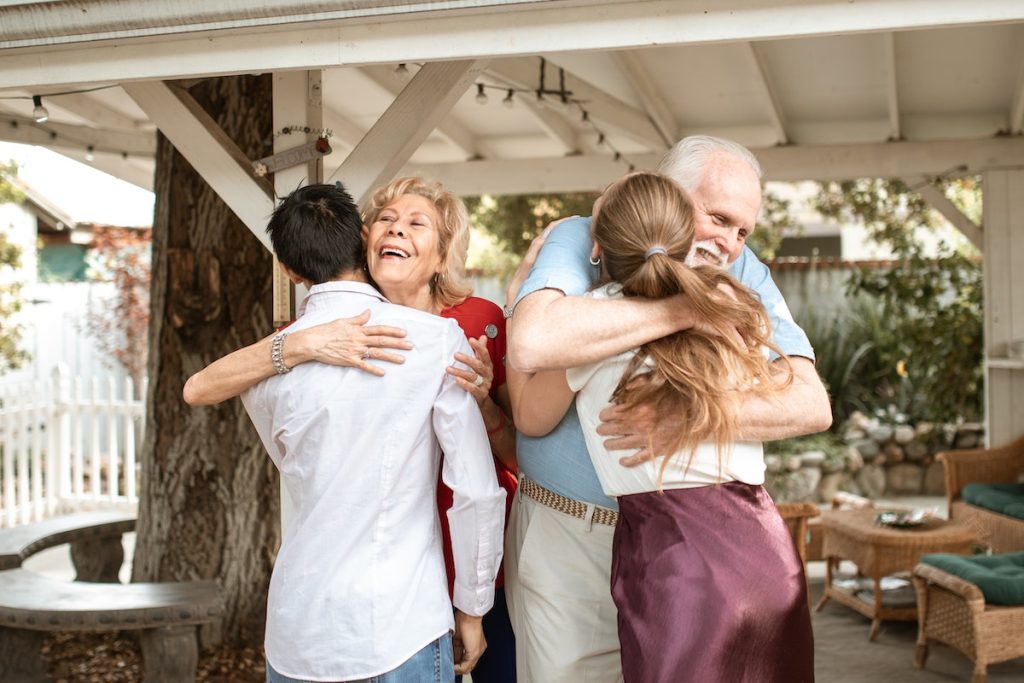- Elder abuse is a significant issue in the United States, with siblings being the main perpetrators.
- Evidence-gathering techniques, such as medical records, testimony from witnesses, photographic evidence, and video surveillance footage, are vital to prove elder abuse.
- Hiring a competent lawyer specializing in elder financial abuse is crucial to help gather evidence and create an injunction to halt the sibling from abusing aging parents.
- Caring for aging parents is a moral and legal obligation, and it allows you to understand your parents better, leading to a closer relationship.
Caring for aging parents is a crucial and unavoidable responsibility that children must undertake. It reflects respect and gratitude towards the parents who have brought them up and is also a moral and social obligation. While some children care for their elderly parents, others may become negligent towards them, leading to neglect and, even worse, abuse.
According to the National Council on Aging, nearly 1 in 10 Americans over 60 have experienced some form of elder abuse, which includes emotional, physical, and financial abuse. Additionally, the Elder Justice Coalition reports that family members commit 90% of elder abuse, and siblings are often the perpetrators.
The statistics are alarming, and siblings must take steps to prevent elder abuse from happening. Here are a few steps to help you.
Gather Evidence of Abuse

It is vital to gather evidence if you suspect a sibling abusing their authority over aging parents. Evidence-gathering can bring clarity to the situation and provide support for any legal action that may be necessary. It can also help you assess the severity of the abuse to determine an appropriate course of action. There are various ways to collect evidence, including the following:
Medical Records
Medical records provide evidence for elder abuse cases, providing an objective view of the older adult’s condition over time. The documents may indicate changes in health due to neglect or mistreatment from a sibling. Medical records might also contain observations from doctors and nurses about the patient’s mental state and ability to communicate, which could provide insight into whether there has been emotional abuse by a family member such as a sibling.
Testimony From Witnesses
Eyewitnesses’ accounts of what they have seen or heard can be robust evidence in elder abuse cases involving siblings. To build a strong case against an abuser, you should identify people who could testify—in court or in writing—to incidents they observed or heard about directly or indirectly from other witnesses present during the incident(s). This testimony must include details such as dates, times, places, and descriptions of what happened so that it’s credible enough to stand up in court if needed.
Photographic Evidence
Photographs have become increasingly important evidence when trying to prove elder abuse by siblings. Photos taken at different times before and after alleged incidents show physical changes like bruises that are hard for abusers to deny or explain away without medical proof. Photos taken over time can also demonstrate how neglect has affected an older adult’s well-being; for example, photographs showing worse malnutrition over time would be strong proof of neglectful behavior by their sibling caretaker.
Video Surveillance Footage
Video surveillance footage can also be used as evidence in elder abuse cases involving siblings; it often provides an undeniable account of what took place between two parties on a given day because it captures moments in real time with no possibility for bias or interpretation discrepancies since everyone sees exactly what was recorded on video footage. Video recordings typically capture all kinds of dialogue, including arguments between the two parties involved—which could provide further proof of verbal/emotional abuse—and physical contact (pushes/slaps/hits) that indicates physical aggression towards elderly parents by their adult child–sibling caretakers.
Hire Legal Assistance

Legal assistance is paramount when dealing with elder abuse cases involving siblings. Hiring a competent lawyer is crucial in protecting your aging parents from the abusive behavior of your siblings. A lawyer specializing in elder financial abuse can help you understand the legal options and guide you through the legal process.
Legal assistance is necessary when trying to gather evidence of elder abuse. An attorney can help you obtain medical records, surveillance footage, and testimony from witnesses. A skilled lawyer can help you assess the strength of the evidence you have gathered and determine whether it is enough to support legal action.
Furthermore, legal assistance can help obtain an injunction to stop a sibling from abusing your aging parents. An injunction is a court order prohibiting a person from engaging in a specific behavior. With an injunction, you can prevent your sibling from taking advantage of or harming your elderly parents.
Additionally, hiring a lawyer can provide you with peace of mind. Aging parents are vulnerable to abuse, and the thought of them being mistreated is distressing. A competent lawyer can offer legal representation and support, helping you navigate the complex legal system and ensuring your aging parents receive the protection they need.
Take Responsibility
Taking responsibility for caring for aging parents is a moral and legal obligation. As per the 1987 Nursing Home Reform Act, children are legally responsible for providing care for their aging parents, including regular check-ins and visits, financial support, and proper healthcare.
Taking responsibility for caring for aging parents is crucial. It allows you to maintain dignity, respect, and independence. As parents age, they may become physically and mentally frail, requiring assistance in their daily activities. You can enhance your parent’s quality of life by providing support and care, allowing them to age comfortably and with dignity.
Secondly, being responsible for aging parents allows you to understand your parents’ needs and desires better, leading to a closer relationship. When parents age, their perspectives and priorities change, and by staying involved, you can better understand these changes and adjust your approach to caring for your parents.
Final Thoughts
Suspecting a sibling mistreating elderly parents is an alarming scenario. The above steps can help you confront the situation and protect your aging parents from harm. Gather evidence, hire legal assistance, and take responsibility for caring for your parents—all these steps will ensure that they age in comfort, with dignity and respect.






